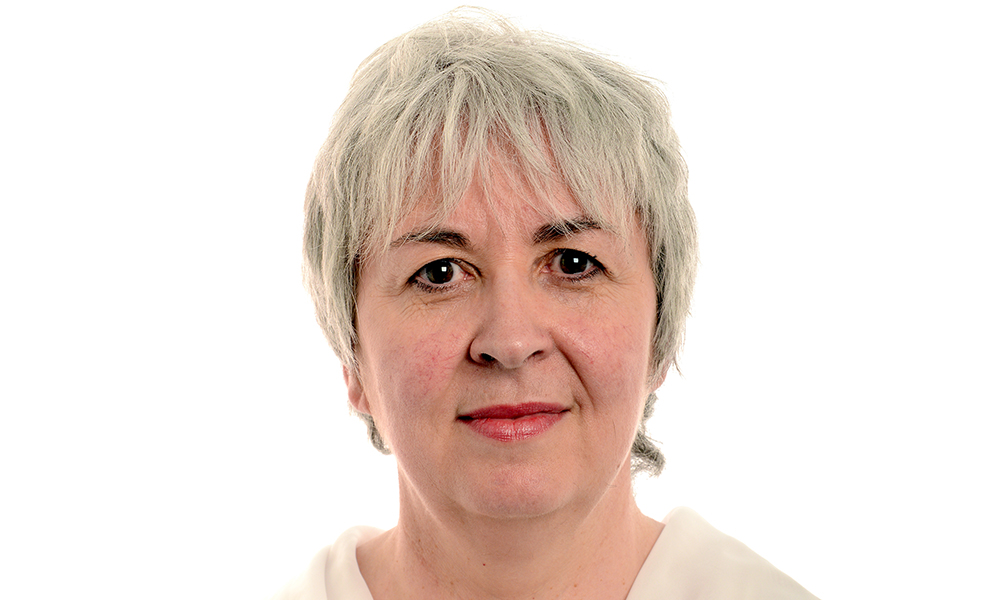
In the latest instalment of our Staff Profile series, we spoke to Lesley Rawlinson about her role as a Laboratory Manager within the Department of Infectious Disease, dealing with the shifting challenges of the COVID pandemic, and being recognised in the 2022 New Year Honours List.
Introduce yourself – who are you and what do you do?
My name is Lesley Rawlinson and I am a lab manager on the St Mary’s Campus responsible for the Section of Virology and Mucosal Infection and Immunity
When did you join the College, and where were you working before this?
I joined Imperial in the year 2000 when the Kennedy Institute of Rheumatology became incorporated into the College. After a brief sojourn with the Kennedy in Oxford, I returned and have been in my current position for nearly 8 years.
What is the most rewarding part of what you do?
The most rewarding part of my job is undoubtedly the people with whom I work. I came to the conclusion quite early in my career that I was never going to be a talented enough scientist to carve a path for myself and establish my own group, so working with the scientists at St Mary’s is a joy. The effort they have put in, particularly during the pandemic, has been nothing short of inspirational. I am very proud to have played my part and to have been given the opportunity to bask in their reflected glory. None of this would have been possible without the other members of the DoID lab management team who are dedicated, skilled, a bit bonkers and enormous fun. No challenge seems to be too big, which is probably just as well, as we work over the next couple of years towards relocating the labs at St Mary’s to the South Kensington Campus.
What are the biggest challenges you’ve had to face in your work since the start of the pandemic? How did you overcome these?
Working with virologists it came as no surprise that they would want to use their skills to assist with the resolution of the Covid pandemic. Projects ranged from the establishment of a testing lab to vaccine research and supporting epidemiological studies such as REACT, which have furnished much of the data upon which key policy decisions have been made. Work in the early parts of the pandemic was undoubtedly intense and fast-moving, but I think the biggest challenge I have faced during the pandemic is this current phase in which we are starting to move towards living with the virus. Government restrictions have been lifted allowing us more freedom to go about our everyday lives and it is so easy to fall into the mindset of thinking the Covid risk has dissipated. The Department, like everyone, is keen to return to normal working practice but restrictions still remain in place as we cautiously move towards that goal. It falls to me as the lab manager to keep eyes and ears open, gently reminding staff of what it is they need to do to make sure the efforts of the last few years in keeping our community safe are not sacrificed on the altar of complacency.
You were recently awarded a British Empire Medal for services to the COVID-19 response in the 2022 New Year Honours List. How did it feel to get this recognition?
When the envelope landed on my doormat I went through a whole range of emotions within the span of about 30 seconds, starting with confusion and mild panic as to why an official government body would be contacting me in strictest confidence, to elation when I realised why, then finally a moment of sadness with the realisation that my parents and brother who supported me through much of my life would not be around to share in my success. Now the news is public, it still feels a bit surreal but I could not be more proud and look forward to receiving my award from the Lord Lieutenant of Cambridgeshire and attending a Royal Garden Party wearing, perhaps, a big hat.
What are your biggest passions and hobbies outside of work?
Outside of work my interests are theatre, music and the visual arts. Nowadays this is mostly as a spectator although in the past I sang for many years with Imperial College’s choir and performed in several theatre companies. One of my favourites was Libra Theatre Company in Cambridge, an integrated group offering opportunities to people with learning difficulties to perform to a professional standard in public theatres. I wrote plays, acted, sang, directed, served as chairman and made the tea for this amazing group of people over a span of 15 years. My aim for 2022 is to get myself into more art galleries and get serious about art history The Van Gogh self-portraits exhibition at the Courtauld Gallery will be a great first step.
And finally – what’s one thing you’d like to share with the Department that we haven’t covered in the questions above?
I have performed with the Dayton Philharmonic Chorus in both Carnegie Hall and the Lincoln Centre in New York